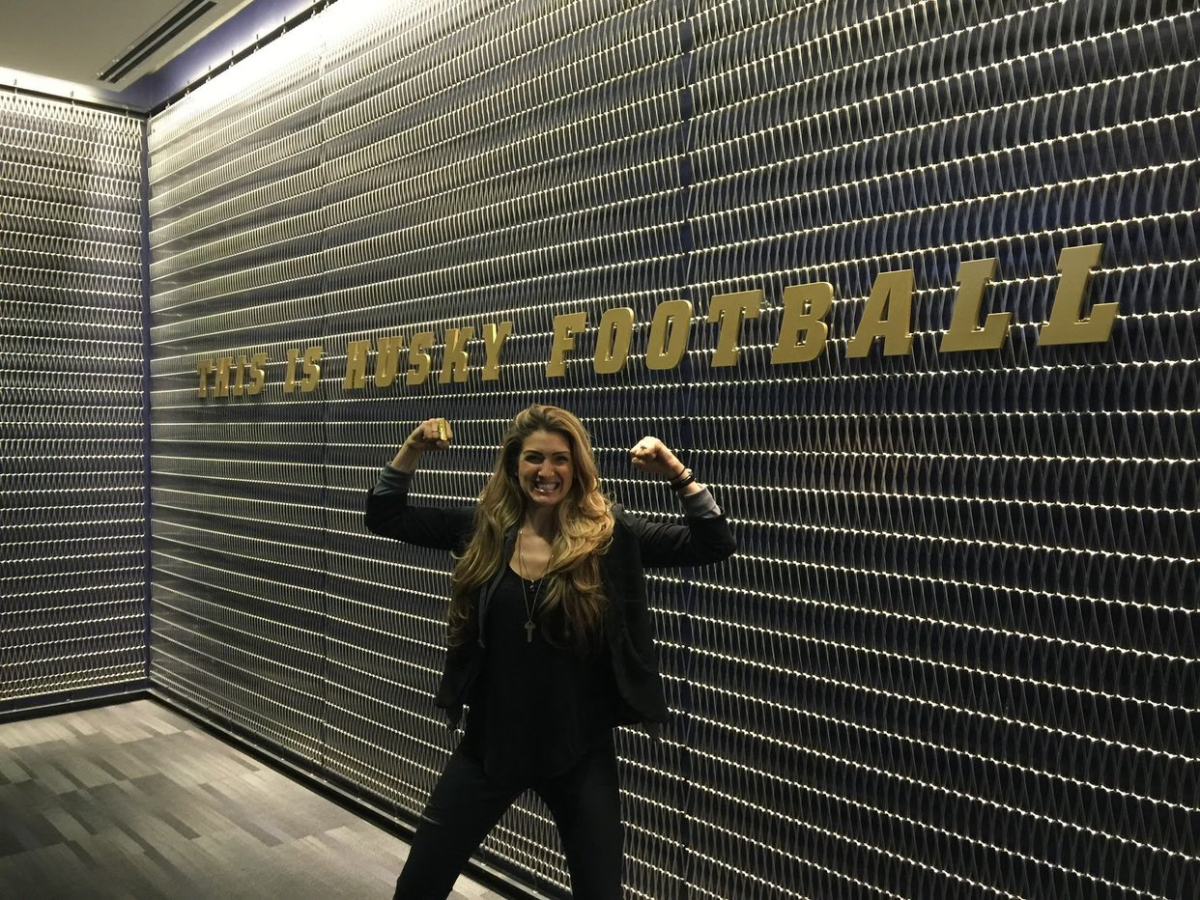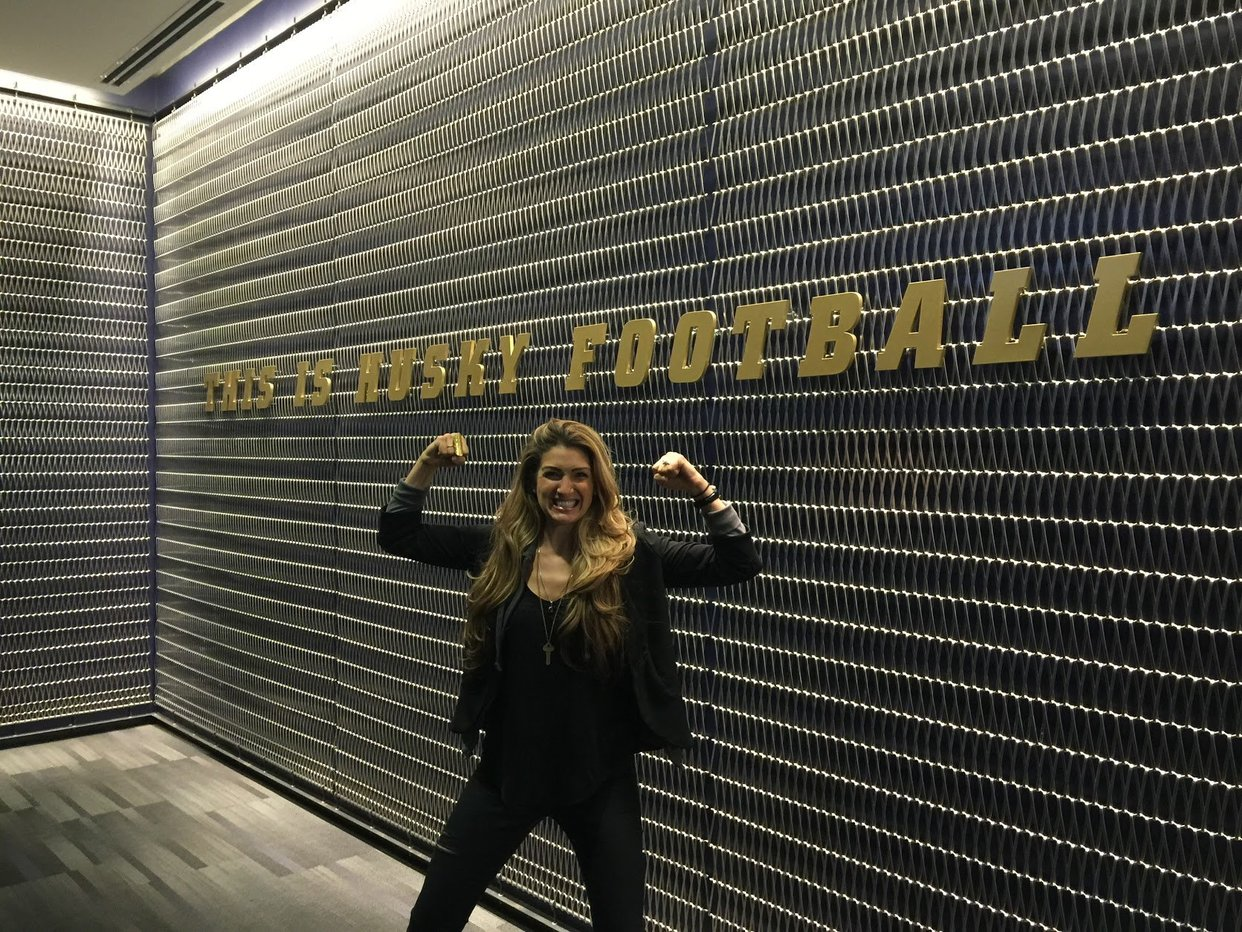Photo courtesy of Alexis Jones
From the captivating and all-consuming energy on the football field or basketball court to the world right outside, an important conversation about respect and basic human dignity has entered the discourse. Activist Alexis Jones led a panel about redefining masculinity in sports at South by Southwest.
Story by Zoya Zia
Jones’ husband and former Longhorn basketball player Brad Buckman joined her on the stage, along with former athlete and current football analyst Yogi Roth and senior director of social responsibility and civic communications Clare Graff of the National Football League. Together, the speakers discussed ways to engage the sports community in a conversation about sexual assault and mental health in an era when athletes are pressured to brand themselves and stay silent.
Jones claimed everyone should be encouraged to participate in the dialogue and find solutions. “This is an invitation for men to participate and for women who have been fighting for their whole lives to decide that this is a human movement,” Jones says.
Graff, who has worked at the NFL for 11 years, agreed with Jones. Her efforts have addressed social issues including domestic violence and social justice through the league, whereas Jones launched ProtectHer as an educational movement. “There is a terrifying culture but it is also exciting to make change,” Jones says.
The #PowerOfPlay is real. And the discussion around sexual violence, depression, hope & Brand building is changing in sports. A gift to be able to have the discussion around redefining masculinity in sports at #SXSW2018 #SXSW18 #scsw w/ @MissAlexisJones @ProtectHer @sxsw pic.twitter.com/U00t6X7GZL
— Yogi Roth (@YogiRoth) March 11, 2018
As the first investor in ProtectHer, Buckman recognized the potential of the program to encourage athletes to use their voices. “Some of us were embarrassed to talk to teammates and it was hard to open up, especially since I grew up with an authority yelling about issues,” Buckman says. “Alexis takes a different approach by asking questions.”
Roth also praised Jones’ approach as critical to uncovering what he called “the humanity” in sports. He first met Jones in college at the University of Southern California, where he coached. “I recognized the influence that coaches have and Alexis raised a topic that everybody wanted to talk about but nobody knew how,” Roth says. “Most names populating the NFL have heard Jones’ talk, including the top quarterbacks in the draft.”
When athletes are trained to defeat obstacles and are celebrated when they do so, certain social constructs may take shape and prevent them from being active bystanders. “With athletes’ upbringing, ideals and what they’ve trained to do, they need tools and answers,” Roth says.
However, a different responsibility accompanies the multimillion dollar jersey. Fans across the country look up to athletes like Odell Beckham, Jr., who are put on pedestals. “Athletes create a narrative that is being received,” Roth says. “They are brands and have voices, but are told to shut it down in college and then develop their positioning statements in the NFL.”
Although Buckman recognized that the toxic culture of masculinity is changing, other stones have only recently been turned. For example, DeMar DeRozan and Kevin Love are two players in the National Basketball Association who are now vocal about their mental health. “With an overstressed population, there is a need to identify the feelings they are having but they are put in a fish bowl,” Jones says. “Girls are bombarded with the beauty industry and men are told not to feel as a product of masculine culture. What about teaching authentic confidence and relationship education?”
To end the panel, the speakers agreed that building an open space for conversation is the first step. Buckman mentioned how he acts as a soundboard for athletes at the University of Texas at Austin and tries to share guidance. “The listening element is crucial because kids want to share,” Roth says.












































